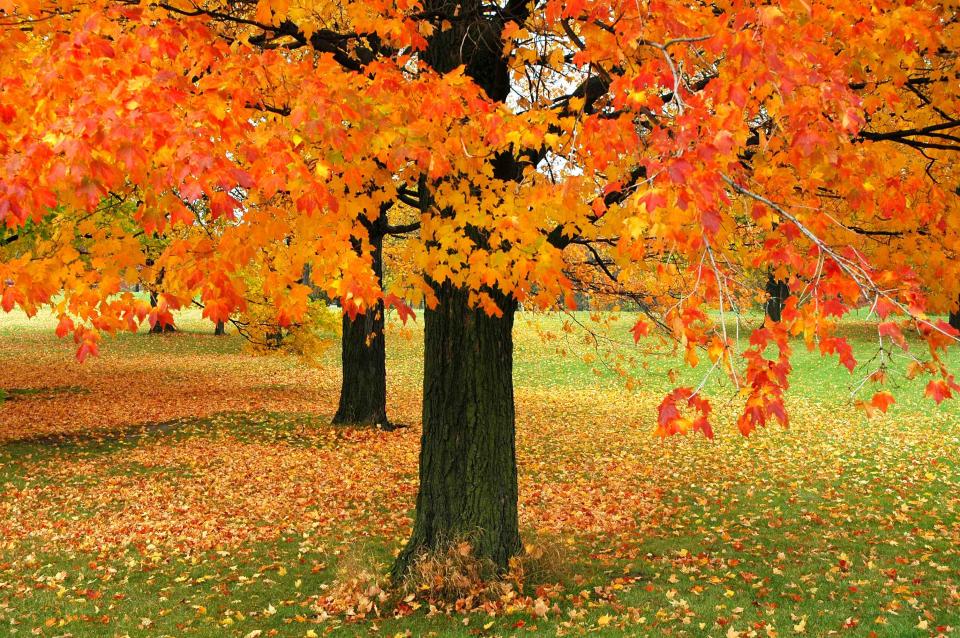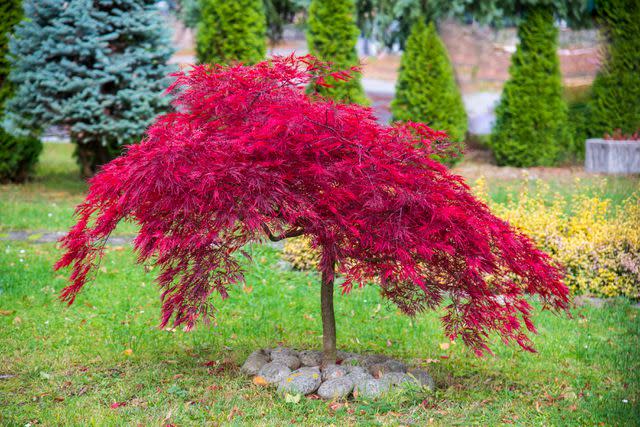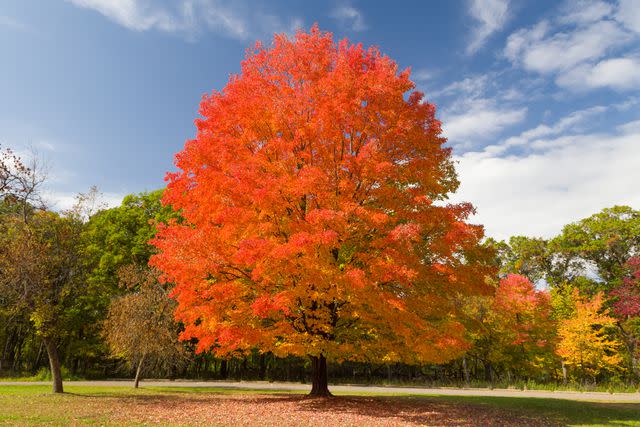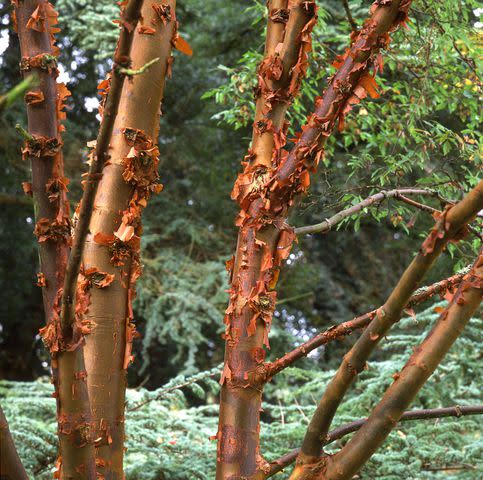5 Types of Maple Trees To Consider for Your Yard
These classic trees are great for curb appeal and shade.

lipika/Getty Images
Maple trees are some of the most popular and common trees out there—and for good reason. You don't need to be an arborist to recognize these beautiful trees featuring distinct, hand-shaped leaves with five points. Maple trees are especially loved for their vibrant autumn colors, and they're a welcome sign of fall. Aside from their ornamental value, some types of maple trees can grow over 120 feet tall, and they can be a great source of shade. While there are approximately 132 species of maple trees out there, we're sharing just some of our favorite types of maple trees, below.
Related: 20 Ornamental Trees That Will Add Some Pizzazz to Your Yard
Red Maple

Riderolga/Getty Images
The red maple tree provides vibrant, year-round color. While the leaves are typically green in the summer months, the trees produce clusters of red flowers in the spring, along with red fruits called samaras. Then, come fall, the leaves turn a bright, vivid red. The red maple is also rapid grower and can provide great shade to your yard.
Japanese Maple

kornyeyeva/Getty Images
Japanese maples can be found in a range of sizes—from dwarf varieties, to shrubs, to small trees. These trees have delicate foliage featuring pointy, star-shaped leaves with five to nine palmate lobes. Easy to care for, Japanese maples provide a great payoff with their bold fall colors.
Related: 7 Red Plants to Give Your Garden a Bright Pop of Color
Sugar Maple

Wolterk/Getty Images
While maple syrup can be sourced from any species of maple tree, sugar maples have the highest sugar content, so they're often the preferred choice for tapping that sweet substance. But you don't need to be interested in sourcing your own maple syrup to want a sugar maple in your yard. These large trees are commonly grown as ornamental and shade trees—and their foliage is a visual treat when in turns bright yellow-orange in the fall.
Related: 20 Easy Landscaping Ideas to Add Instant Curb Appeal to Your Home
Paperbark Maple

Michel VIARD/Getty Images
It's the bark, not the leaves, that really set this maple tree apart. Its reddish brown bark peels away from the trunk in paper-thin strips. The tree has an upright, oval shape, and its smaller overall size makes this type of maple tree a great choice for bordering a small yard or patio. The paperbark maple is one of the last maples to develop fall color, but it often holds onto its leaves well into winter.
Silver Maple

Grace Cary/Getty Images
The silver maple tree is named for the undersides of its leaves, which have a light, silvery appearance. Silver maples are fast-growing trees that can provide great shade, and they're prized for their vibrant color change in autumn. However, their shallow roots have been known to damage sidewalks and foundations and should be planted at least 10 feet away from walkways, driveways, or the house. So, make sure to do a bit more research before deciding to plant one of these trees in yard.
For more Real Simple news, make sure to sign up for our newsletter!
Read the original article on Real Simple.


